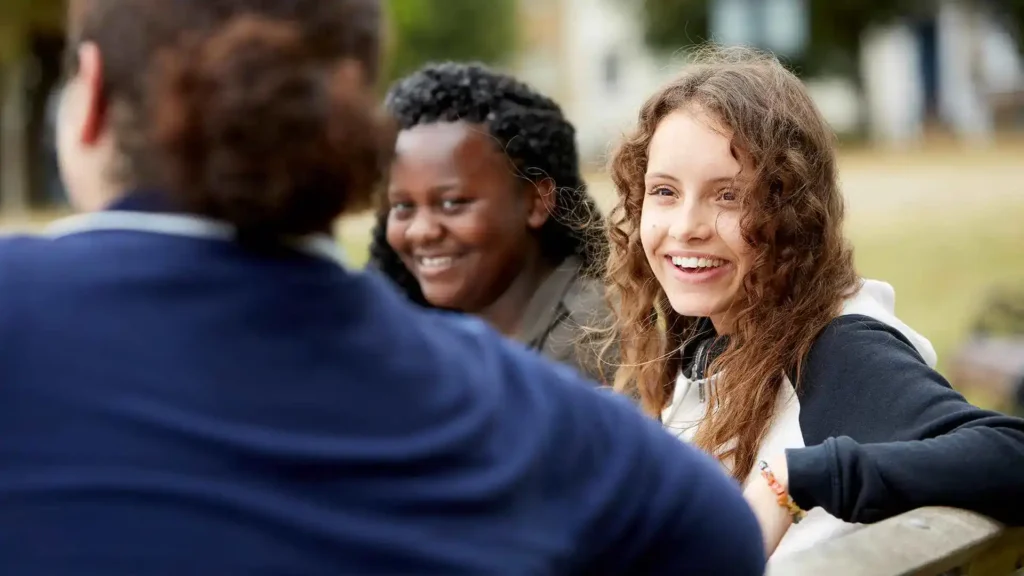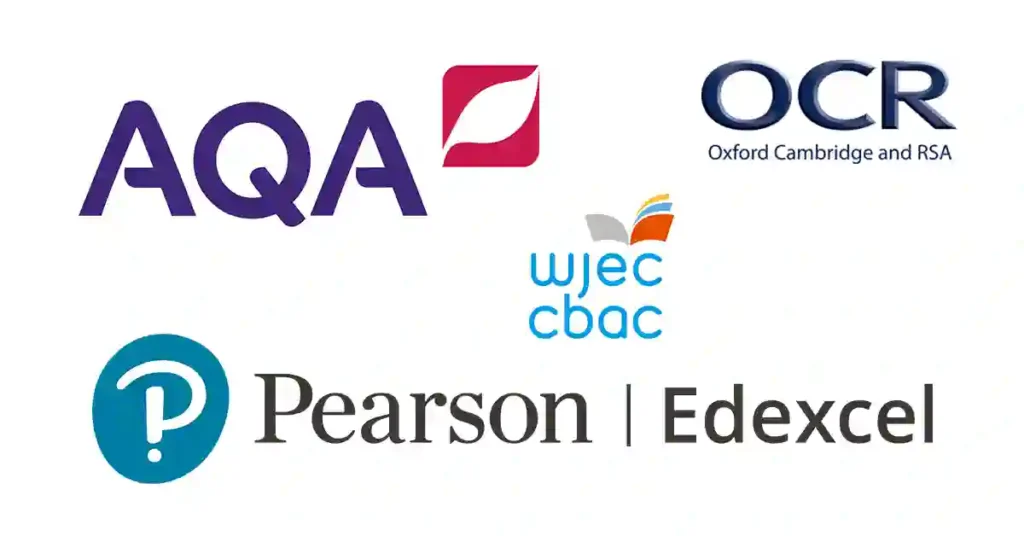Can I Do GCSEs Early: Sitting Exams in Year 9 or Year 10?
This article is split into 2 parts:
Part 1 – Can I do GCSEs early?
Part 2 – How do I sit GCSE Exams Privately
Part 1: Overview – Can I complete GCSEs early?
GCSEs are an important set of exams taken by students typically at the end of Year 11. These exams assess a student’s knowledge and understanding of various subjects. They also play a significant role in determining future educational and career opportunities. However, there may be instances where students may consider sitting their GCSE exams in Year 9 or Year 10.
What are GCSE exams?

GCSE exams, or General Certificate of Secondary Education exams, are a set of standardized tests taken by students in the United Kingdom at the end of their secondary education. These exams are typically taken by students aged 15-16, but can also be taken by private candidates of any age. Designed to assess a student’s knowledge and understanding of a particular subject, GCSE exams usually come in various formats, such as multiple-choice questions, short-answer questions, or essays. This flexibility allows private candidates to demonstrate their proficiency in a wide range of subjects.
The Benefits of doing your GCSEs early
On one hand, sitting GCSE exams in Year 9 or Year 10 can have certain benefits. One advantage many GCSE tutors agree with is it allows students to complete their exams earlier. Students also have the option to continue preparing for GCSEs at the same school with their classmates, which offers a familiar environment. This provides them with a head start on their academic journey. By taking exams earlier, students can potentially move on to more advanced subjects or pursue additional qualifications during their later years of study.
Furthermore, earlier completion of GCSE exams may alleviate some of the stress and pressure associated with Year 11. This is as students can spread their exam-load over a longer period of time. Additionally, sitting GCSE exams earlier can provide students with a sense of achievement and confidence. Successfully completing exams in Year 9 or Year 10 can boost students’ self-esteem, as they are able to demonstrate their knowledge and capabilities at an earlier stage.

Domino Effect?
This early success can motivate students to pursue further academic challenges and set higher goals for themselves. Moreover, some students may have exceptional abilities or excel in certain subjects, making it feasible for them to sit their GCSE exams earlier. For these students, completing the exams in Year 9 or Year 10 allows them to progress at a faster pace and engage in more advanced coursework or higher-level subjects during their remaining school years. However, there are also potential disadvantages to consider.
The Drawbacks of doing your GCSEs early
One major concern is that sitting GCSE exams earlier may limit a student’s breadth and depth of knowledge in a subject. The extra time provided in Years 10 and 11 allows students to delve deeper into the curriculum, gain a more comprehensive understanding of the subject matter, and develop critical thinking and analytical skills. Rushing through the material to sit exams early may result in a shallower understanding of the content. Furthermore, students who sit their GCSE exams early may miss out on important learning experiences and opportunities for personal growth.
School’s not just about exams…

The final years of secondary school provide a valuable period for social and emotional development, as well as the chance to participate in extracurricular activities, gain leadership skills, and build relationships with teachers and peers. Sitting exams early may limit a student’s involvement in these aspects of school life. Additionally, it is crucial to consider the potential impact on university and career prospects. Many university admissions and employment processes consider GCSE grades as a significant factor.
Conclusion – should you do your GCSEs early?
Sitting GCSE exams in Year 9 or Year 10 can offer certain advantages, such as early completion, a sense of achievement, and potential for further academic progress. However, it is essential to carefully weigh the potential drawbacks. If you are considering this option, consider the depth of knowledge they will acquire, the impact on their personal development, and the long-term implications for university and career prospects.
You may consider looking for a GCSE Maths tutor, or a GCSE English tutor. Ultimately, the decision should be made with careful consideration of individual abilities, goals, and aspirations.
Part 2: Overview – How do I arrange Private Exams for my GCSE Subjects
If you’re a student or learner considering taking GCSEs as a private candidate, the process offers a flexible way to get qualified. It is important to find official exam centres that accept private candidates to streamline the process for individuals pursuing these qualifications independently. Private candidates unlike school students don’t have to be in full time education. This means you can study independently, at your own pace and sit GCSEs at an approved exam centre. This is perfect for those who prefer distance learning, are home schooled or have a tutor to guide you through specific subjects.

TL;DR (summary of info below)
as a student you can do whatever subjects you would like to do but please do your research so it doesn’t affect your further studies/career prospects
exam fees as charged per subject and we can provide additional information on them (e.g. the process, booking fees, late booking fees, very late booking fees)
Studdle has dozens of Exam Centres partnered with our platform so speak to our team if you’re a private candidate by completing this form.
Who can be a Private Candidate?
Private candidates can be of any age, children or adults, who want to do their GCSEs outside the normal school structure. Private GCSE candidates include those resitting their exams or taking them for the first time, with tailored exam booking services available. These candidates may choose this route for many reasons, early entry to GCSEs, such as younger students asking, “Can I do GCSEs early?” Others may be older learners or those who have completed school and want to resit GCSEs to get a higher grade or to gain qualifications in subjects they missed at school, such as GCSE maths or English language. Others may be homeschooling / home educating.
Registering as a Private Candidate
The process of registering as a private candidate starts by choosing an exam board (AQA, Edexcel or OCR) and finding an exam centre that accepts private candidates. You need to book exams well in advance as the deadlines for GCSE exam booking can vary depending on the subject and exam centre availability.
Some schools and centres are more private candidate friendly than others and it’s important to check that the centre you choose will administer the subject exams you need. For example some centres may offer mock exams or require private candidates to do practical assessments in subjects like science (biology, chemistry and physics). Centres will also provide more information on fees which can vary by subject and location.
Choosing the right exam board

When it comes to taking GCSE exams as a private candidate, selecting the right exam board is crucial. There are several exam boards to choose from, including AQA, Edexcel, OCR, WJEC, and Edexcel International GCSE (aka iGCSE). Each exam board offers a variety of GCSE subjects, and some may be more suitable for your needs than others.
For instance, if you’re interested in taking a GCSE in computer science, you’ll want to choose an exam board that offers this subject. Additionally, different exam boards may have varying exam formats or requirements, so it’s essential to research and select the one that best fits your needs.
Exam Preparation and Resources
Many private candidates work with distance learning providers who offer structured courses and study materials. These resources are useful for subjects like computer science or maths where mock exams and interactive tutorials are important to learn the content. Private candidates may also choose to have a personal tutor or study independently with textbooks and online resources. GCSE revision guides are widely available and can be used to study at your own pace so you’re ready for the exam.
Some private candidates may worry about not being in a classroom in the traditional sense but distance learning and self study allows you to study while managing other commitments like work or family responsibilities.
Subjects available for Private Candidates
Private candidates have access to many GCSE subjects from core subjects like Maths, English and science to more niche subjects like history or computer science. Not all exam centres offer all subjects but many exam boards have a list of which subjects can be taken privately.
Studdle has a comprehensive list of partner Exam Centres which will allow you to do the GCSE subjects you wish to!
Key Dates and Exam Timetable

Private candidates need to be aware of the registration deadlines which are several months before the exam period. For example if you want to take exams in November you need to register well in advance to secure a place at an exam centre. Exam timetables are provided by the exam boards and will help you plan your revision.
Fees for Private Candidates
When registering for GCSE exams as a private candidate you need to be aware of the fees. As a private candidate you will be responsible for all the costs associated with your exam entries. Fees can vary depending on the exam board, subject and the exam centre you will be sitting at.
For example AQA has a guide for private candidates on their website which states that the cost of entering each GCSE exam can be between £40 to £100 per subject. These fees include the exam entry fee, administrative costs and any additional services provided by the exam centre such as mock exams or practical assessments (for subjects like science).
Additionally exam centres may charge extra fees for registration, handling and invigilation services especially if you need special arrangements such as extra time or support for special educational needs. You should contact your chosen exam centre early to get a breakdown of their fees as centres may also have deadlines for exam entries and late fees if missed.
Always check the exam board and centre’s policy on fees to avoid any surprises on the day of the exam.
For more info on fees for private candidates contact our team.
Exam day and results
On exam day, private candidates will typically sit their exams at an external exam centre, which can be located anywhere in the UK. The exam centre will provide a quiet and secure environment for you to take your exams, ensuring that all exams are administered fairly and in accordance with the exam board’s rules. After completing the exams, the exam board will mark your papers and provide you with your results. Results are usually released in August and can be accessed online or by post.
Post-exam review and appeals
If you’re not satisfied with your exam results, you have the option to appeal or request a review of your papers. This process can be initiated through the exam board and may involve re-marking your papers or reviewing the exam centre’s administration. Additionally, some exam boards offer a post-exam review service, providing feedback on your performance and helping you identify areas for improvement. It’s essential to check with your exam board to understand the available options and procedures for appeals and reviews.
Summary
Being a private candidate means you can sit GCSEs privately and have control over the learning process. Whether you want to resit an exam, do GCSEs for the first time or do early entry for certain subjects you can study at your own time and own pace. With the right preparation, resources and exam centre support you can get the highest grade in your chosen subjects and open up further education or career opportunities.

